Major infrastructure upgrades to boost revenue performance
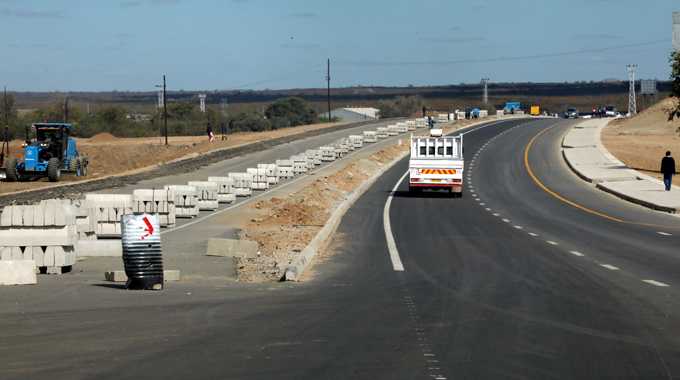
Prosper Ndlovu, Business Editor
GOVERNMENT expects the on-going infrastructural development projects, particularly the upgrading of major highways, to impact positively on revenue performance through improved transport and logistics movement, which enhances trade facilitation between Zimbabwe and regional markets.
The Second Republic is spearheading massive roads rehabilitation works in different parts of the country with the Harare-Masvingo-Beitbridge Highway widening, reconstruction and rehabilitation project being one of the top priorities.
The highway project, which closely connects to the US$300 Beitbridge Border Post modernisation, is critical given its significance as a major link for Zimbabwe to the North-South Corridor, which is a strategic trade route for the entire southern region and the Comesa bloc.
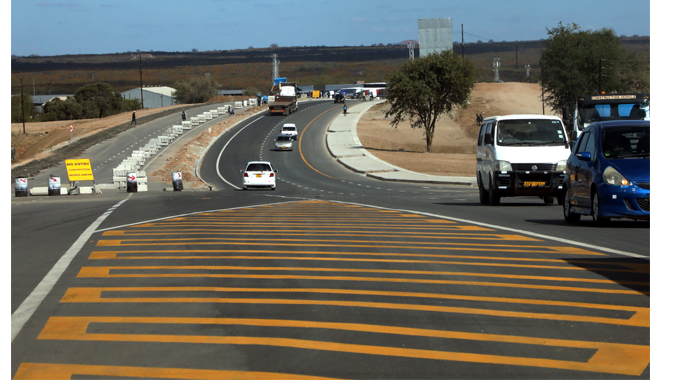
Harare-Masvingo-Beitbridge Highway during construction
When complete, the highway is expected to have eight toll plazas and result in increased and more efficient movement of cargo and passenger travel for the benefit of Zimbabwe and the entire region.
Projected to cost US$650 million, the project is key towards attainment of Vision 2030, which seeks to transform the country into an upper middle-income economy and also feeds into the Africa Agenda 2063 developmental ideals.
Remarkable progress has been recorded so far with a total of 326,9km out of the target of 520km having been completed, according to official reports. The completed portion has also been opened to traffic of which 51,9km was done during the period January to June 2022. “Infrastructure developments, particularly the completion of part of the Beitbridge-Chirundu Highway that links Zimbabwe to the North-South Corridor is expected to enhance revenue performance,” said Zimra Acting Commissioner General, Ms Regina Chinamasa, in a latest revenue performance report issued yesterday for the second quarter ended 30 June 2022.

Ms Regina Chinamasa
The Beitbridge-Harare Highway project is being undertaken by five local companies and is wholly funded by the Government. These are Bitumen World, Fossil Contracting, Masimba Construction, Exodus and Company and Tensor Systems.
To speed up progress, Treasury last week allocated a further $33,2 billion towards the upgrading project under its Road Development Programme and the Emergency Roads Rehabilitation Programme (ERRP2).
“An additional amount of $33,2 billion has been set aside to enable meeting of the target of completing 100km during the year 2022,” said Finance and Economic Development Minister, Professor Mthuli Ncube, while presenting his 2022 Mid-Term Budget and Economic Review Statement in Parliament last Thursday.
Ms Chinamasa said the revenue dividend from such road infrastructure developments would be beefed up by the notable strides being recorded in the manufacturing and mining sectors in response to the comprehensive economic reforms being implemented under the New Dispensation led by President Mnangagwa.
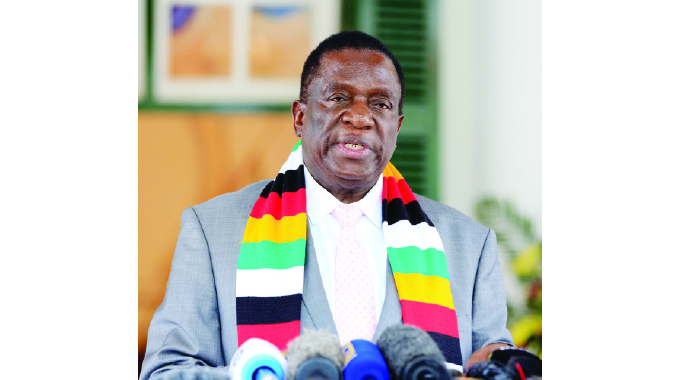
President Mnangagwa
“Real revenue growth is anticipated to exceed 10 percent supported by the improving manufacturing sector capacity and the anticipated mining sector growth in which the industry is expected to meet the US$12 billion target by 2023,” she said.
“Going forward the authority will intensify implementation of various compliance strategies to ensure accurate tax remittances from different taxpayer segments.”
During the second quarter of 2022, Ms Chinamasa said net revenue collections amounted to $316,81 billion, which gives a positive variance of 63,51 percent against target of $193,75 billion.
During the same period in 2021 $106,64 billion was collected.
Ms Chinamasa said nominal and real revenue collections grew by 197 percent and 23,83 percent respectively with all revenue heads registering positive growth.
In line with infrastructure upgrade momentum and as part of the Government’s ease of doing business drive, Ms Chinamasa said Zimra was implementing an electronic single window (ZeSW) model, which will allow for online document submission, clearance and payment to all other Government agencies involved in the clearance process of goods at the ports of entry.
“This will improve ease of doing business, reduce corruption and ease congestion at the ports of entry. The ZeSW is a fulfilment of Zimbabwe’s commitment to the Trade Facilitation Agreement to which the country is a signatory,” she said.
Similarly, transit motorists and businesses are already enjoying the fruits of the upgraded Plumtree-Bulawayo-Harare-Mutare Highway, which was completed a few years ago and links Forbes Border Post with Mozambique and Plumtree Border Post to neighbouring Botswana.
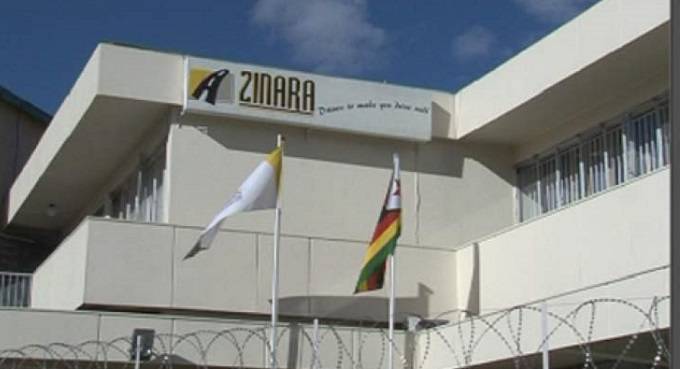
The project was undertaken at a cost of US$260 by Infralink, a joint venture between Zinara and South Africa’s Group Five International through a loan from the development Bank of Southern Africa (DBSA).
Using domestic resources, the Government has now embarked on dualisation of the Harare-Bulawayo stretch in response to growing vehicular cargo and passenger traffic while other roads such as Bulawayo-Beitbridge and Bulawayo-Victoria Falls, which links the country with Livingstone, Zambia, are also underway.
Feeder roads across the country and those in urban cities are also being rehabilitated under the Emergency Roads Rehabilitation Programme (ERRP2), which was allocated $33 billion in the 2022 budget.

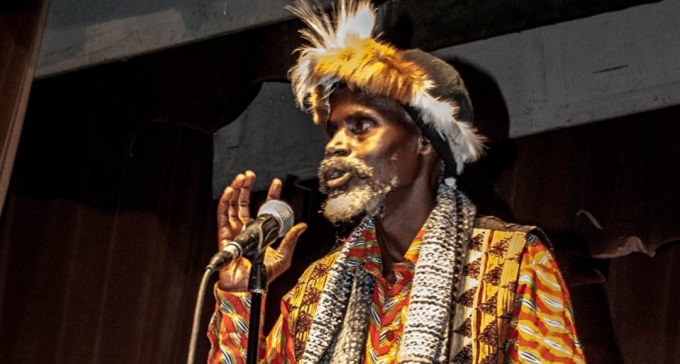
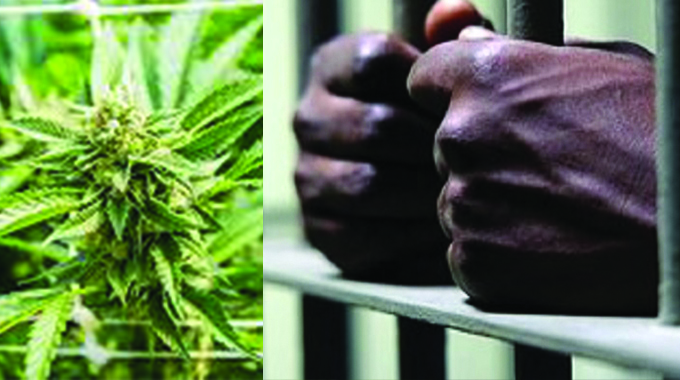
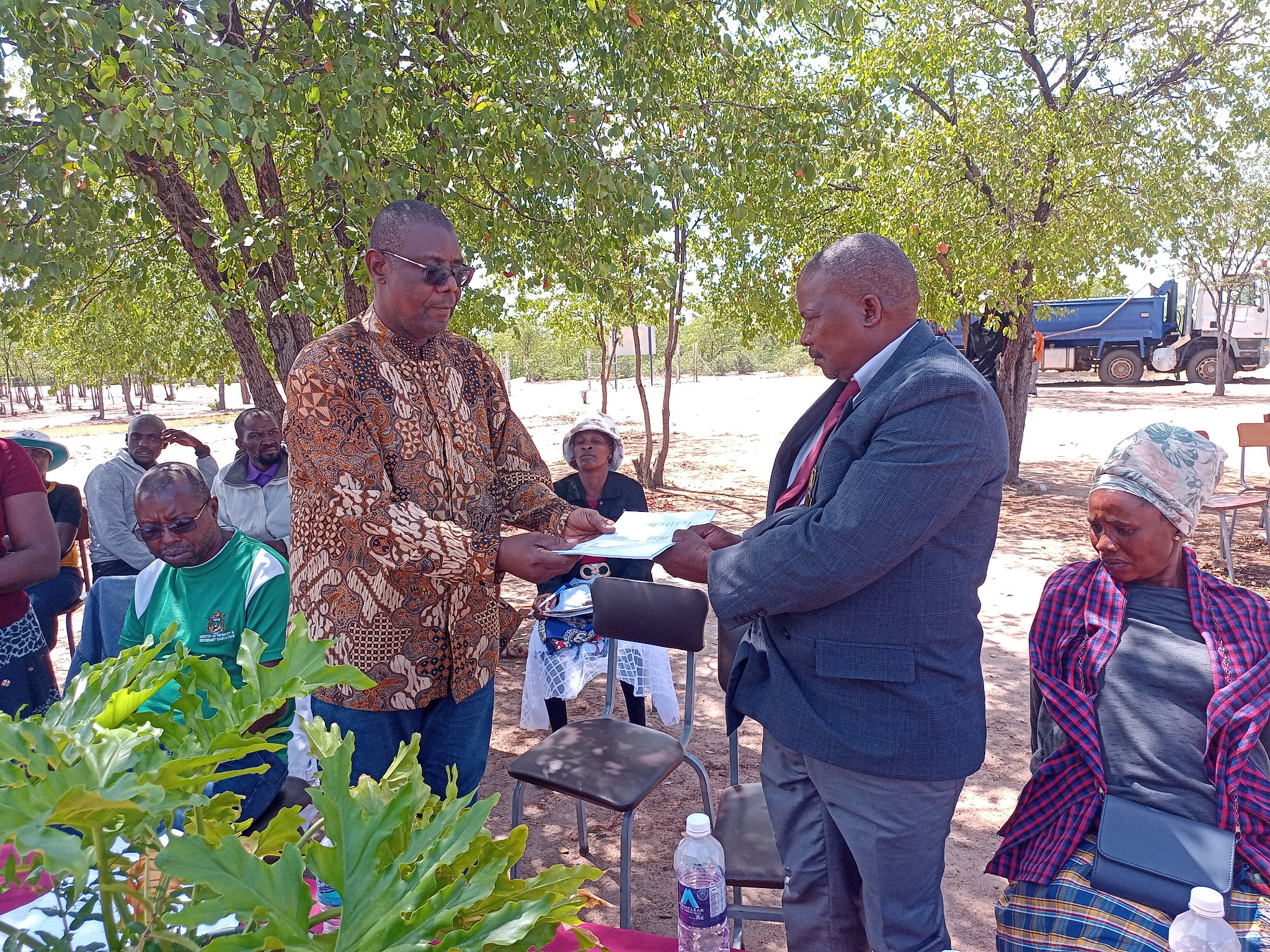





Comments